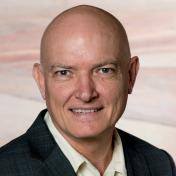Innovation driven by high performance culture and recruitment
Innovation is not something you can hire, adopt or buy - it needs to be grown and cultured from within. Northrop's Principal, Jamie Shelton, says the company understands that engineering innovation needs to be grown from a high performance culture.

The organisation has worked hard to foster such an environment for its engineers, and it is paying off both for the business and the client, he says.
"Managing risk without stifling creativity and ingenuity can bring enormous value to clients and projects," Mr Shelton says.
"Risk aversion can promote conservative, process-driven approaches to engineering design, in which the opportunities for great outcomes through great engineering are overshadowed by the fear of stepping outside the box."
"We have worked hard to transform Northrop into a place where people will flourish - they can work without the constraints of procedures but are guided by their understanding and alignment of the company and project objectives."
"We want our engineers to draw ingenuity to provide solutions that address the specific requirements of a project, rather than churn out the one-size-fits-all solution that is conservative, expensive and provides little value."
"Northrop is a company that values creativity and flexibility - we empower our people to make the right decisions about how to do their work in a way that contributes to our success, is supportive of our culture and is aligned with our business objectives."
The war for engineering talent is savage, but Northrop prides itself on having attracted innovative and flexible engineers to its team.
"Capturing and extracting the value of good ideas can bring about extraordinary project outcomes, and be particularly rewarding for the project team," Mr Shelton says. "At Northrop we believe good ideas can come from anyone at the table. We thrive in an open and collaborative design process in which good ideas belong to the project, not an individual, and that recognising, appraising an improving on an idea requires teamwork."
"We're not precious about our ideas, and often the greatest value is found in developing someone else's."
Flexibility is an important trait for engineers in the current environment, as the nature of project delivery is changing rapidly.
"Engineers need to be more and more flexible in how they work and who they work for," Mr Shelton says. "For example, it’s now very common that an engineer will initially work for the principal and then be novated to the builder to complete the project. This requires engineering consultants to understand and adapt to the different project drivers that come with different clients."
"On top of this, the trend in design and construct contracts is for tighter and tighter budgets and deadlines."
"Smart engineering firms respond by investing in people and seeking opportunities to improve service delivery through innovation. They hire good staff, promote innovation within and focus on good client service."
Mr Shelton says Northrop's plan for growth revolves around its culture and the development of the careers of its staff.
"At Northrop we believe there are three key drivers for success: client-side thinking, coalface exposure of the principals to projects, and career development of our team members within a supportive framework," Mr Shelton says.
"This approach has been very successful for us at Northrop - we are attracting and retaining great people, who are responding to the opportunities presented by our clients' projects. We are growing and will continue to grow."

